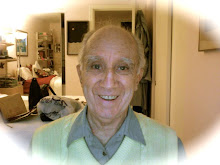THE BOGUS ECONOMIST July 19, 2008
BUSHNESS AS USUAL
I've been trying to figure out the Bush/Cheney mindset for the last eight years. To label Cheney as Machiavelli and Bush as Alfred E. Newman seemed to explain it at first, but as we took troops away from a war with something to win (hearts and minds- Afghanistan) and sent them to a war we started because we might have something to lose (oil reserves- Iraq), I began to suspect I was being much too simplistic. I became totally convinced when Mr. Bush began to use the phrase "vital American interests."
Sure, most people understood that the most "vital" thing about the war was black and sticky, but when we killed Saddam's kids and finally hung their dad, a lot of Americans were ready to be convinced we were really after a democratic form of government in Iraq and the oil was going to pay us back for the billions we spent seeing that statue go down. As the war dragged on and our casualties went into the thousands and Iraqi civilians were getting mowed down by the hundred thousands, we got tired of waiting for the guys we were helping to stop shooting at us, even if they really meant to shoot each other.
Mr. Bush and Mr. Cheney continued to lead the cheering section for the war, even after the stories of graft, corruption, "collateral damage," Abu Graib and general moral decay began appearing in the papers. Our leaders continued to say that we were sacrificing our troops to bring "democracy" to Iraq. They're still saying it after the democratically-elected president of Iraq said he wants us out.
The only answer I can find for this seemingly endless stupidity and cupidity is that Bush and Cheney are sincerely trying to bring their idea of democracy to Iraq. The problem is they don't have the faintest idea what it is.
The confusion between capitalism and democracy is almost as old as the country itself. The extermination of the Indian tribes, slavery and almost every war we fought could be traced to a desire to make people rich, not free. A by-product of this, of course, was to build a powerhouse of production and a people who believed money was a symbol of success, which, of course, it is. Eventually, money came to be THE symbol of success.
When the Soviet Union emerged as a threat, we didn't use the word "dictatorship" to describe it. The leaders of the USSR were just as much dictators as the German one had been. The word used to describe the Soviet threat wasn't their political system, but their economic one - communism. In other words, we were told not to be as worried about how the Russians were being governed as who owned their factories.
If you should ask a hundred Americans - even today - what the opposite of democracy is, I'd bet ninety-eight of them would reply, "Communism." Wrong. Russia could have a free election tomorrow and the Communist Party would win in a landslide. They'd have a democratic communism.
Bush and Cheney identify our country with the system that made them rich - capitalism. As capitalists, they realize that the more shares of stock you have, the more votes you get. This explains Cheney's response to a statemen that a majority of Americans oppose the war in Iraq. I'm sure you remember his answer: "So?" We see an extension of what Charles Wilson, CEO of General Motors and later Secretary of Defense, said more than fifty years ago - "What's good for General Motors is good for the country." America means business- to some, literally.
The only two explanations I can come up with for the attempted demolition of the Constitution in pursuit of oil, power and private profit (see Halliburton, Blackwater, etc.) is either Bush and Cheney are traitors to our country and should be brought to trial or they really honest-to-God don't understand what this country was intended to represent.
When you're raised in a penthouse, you don't understand the tenement. When you never have understood the concept of equality under the law, you don't strain yourself to enforce it. If the end justifies the means in business, why not make it national policy.
This new understanding doesn't mean I like either Mr. Bush or Mr.Cheney one little bit more than I used to. It just means I understand a little better why I dislike them as much as I do.
-30-
Sunday, July 20, 2008
Subscribe to:
Post Comments (Atom)

No comments:
Post a Comment